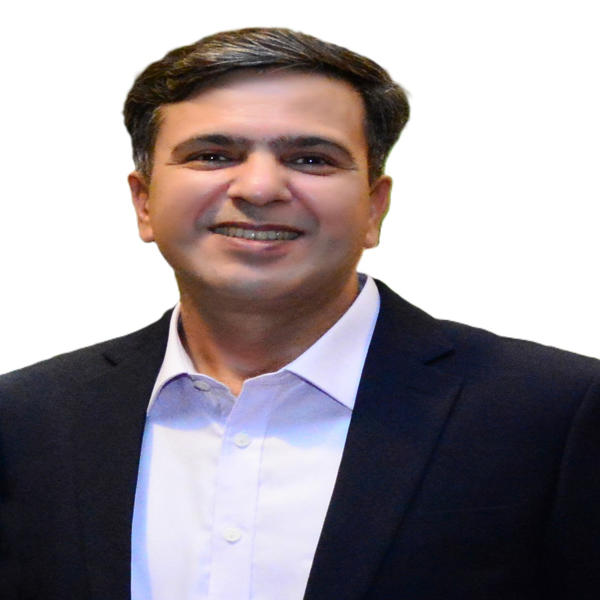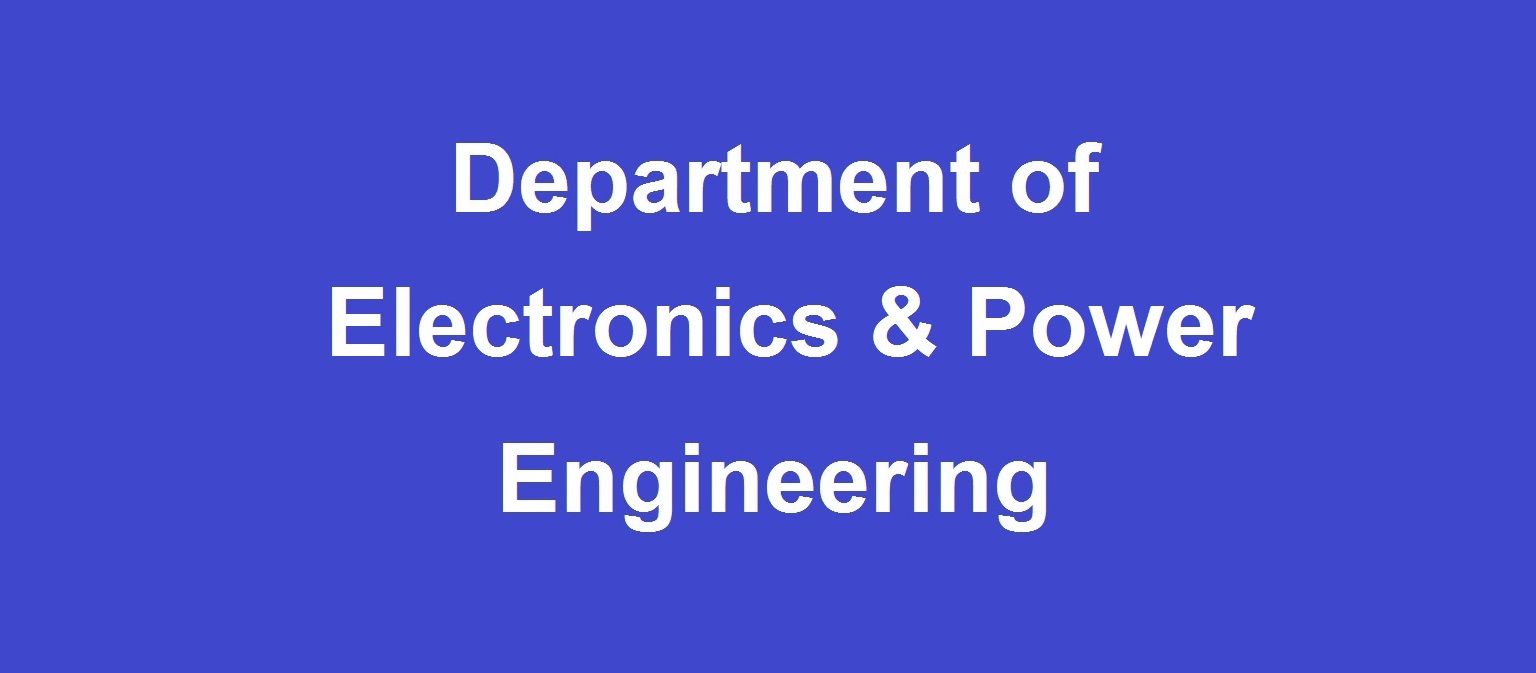Department of Electronics & Power Engineering
The department has the following Program Educational Objectives:
| Few (Two to Three) years after graduation, the students are expected to demonstrate their ability: | |
| PEO-1 | To demonstrate knowledge of Electrical Engineering and allied disciplines to analyse, investigate, design, and develop viable solutions to contemporary engineering problems in a multidisciplinary work environment |
|
PEO-2
|
To collaborate and contribute in socio-economic project development and exploit domain-based knowledge of using modern hardware, software, and statistical tools to evaluate and devise sustainable solutions to emerging engineering problems, with due regard to environmental and societal concerns. |
| PEO-3 | To demonstrate professional qualities, work ethics, continuous enhancement of knowledge & skills, good verbal & writing skills, and ability to excel individually and collectively in their professional career. |
The graduating attributes (GAs), as defined by Pakistan Engineering Council (PEC), have also been adopted by the department in its B.E Electrical Program as the Program Learning Outcomes (PLOs). These are:
| No. | PLO | Statement |
| 1. | Engineering Knowledge | Apply knowledge of mathematics, natural science, engineering fundamentals, and engineering specialization to the solution of complex engineering problems. |
| 2. | Problem Analysis | Identify, formulate, conduct research literature, and analyze complex engineering problems reaching substantiated conclusions using first principles of mathematics, natural sciences, and engineering sciences. |
| 3. | Design/Development of Solutions | An ability to design solutions for complex engineering problems and design systems, components or processes that meet specified needs with appropriate considerations for public health and safety, cultural, societal, and environmental considerations. |
| 4. | Investigation | Conduct investigation of complex engineering problems using research-based knowledge and research methods, including design of experiments, analysis and interpretation of data, and synthesis of information to provide valid conclusions. |
| 5. | Tool Usage | Create, select, and apply appropriate techniques, resources, and modern engineering and IT tools, including prediction and modeling, to complex engineering problems, with an understanding of the limitations |
| 6. | The Engineer and the World | Analyze and evaluate sustainable development impacts to society, the economy, sustainability, health and safety, legal frameworks, and the environment while solving complex engineering problems. |
| 7. | Ethics | Apply ethical principles and commit to professional ethics and norms of engineering practice and adhere to relevant national and international laws. Demonstrate an understanding of the need for diversity and inclusion. |
| 8. | Individual and Collaborative Team Work | Function effectively as an individual, and as a member of a leader in diverse and inclusive teams and in multi-disciplinary, face-to-face, remote, and distributed settings. |
| 9. | Communication | Communicate effectively and inclusively on complex engineering activities with the engineering community and with society at large, such as being able to comprehend and write effective reports and design documentation, and make effective presentations, taking into account cultural, language, and learning differences. |
| 10. | Project Management and Finance | Demonstrate knowledge and understanding of engineering management and principles and economic decision-making and apply these to one’s own work, as a member and leader in a team, to manage projects in multidisciplinary environments. |
| 11. | Lifelong Learning | Recognize the need for, and have the preparation and ability for i) independent and lifelong learning, ii) adaptability to new and emerging technologies, and iii) critical thinking in the broadest context of technological change. |

Head of Department Message
Engr Ashar Mahmood
The Electrical Engineering (EE) Department administers the Academic Programs for BE in the disciplines of Electronics, Electrical Power and Telecommunication), MS (Electrical Engineering) with specialization in Control Engineering and Communication Engineering, PhD (Electrical) in specialized fields and mid-career professional courses of WESMC to Weapon Engineering officers. The Department also manages college networking & internet services facility and activities/courses related to computer sciences and information technologies. In addition to the large undergraduate and postgraduate programs, the Department is also actively engaged in R&D activities at graduate and doctoral level. Bechelor of Engineering in Electrical Power, Electronics and Telecommunication The BE Electrical Engineering Program is designed to meet the modern trends in the field of electrical technology, encompassing wider technological perspective. The program includes study of engineering core & interdisciplinary, basic sciences & humanities, computer skills, management with blend of design project completion and presentation for useful application. The Program has been designed as per standards and guidelines provided by HEC/PEC. The unification of syllabus in terms of specialization in electronics, power, telecommunication has been introduced to meet the technological challenges, to provide trained manpower for technical solution and to incorporate market trends. The strong element of electrical power enables the graduate engineer to take on his job effectively in power generation and distribution sector. With a significant minor and major design project work, students are able to apply their theoretical knowledge into research and development activities. The electrical engineering labs are equipped with state of art devices and equipment. The electronic engineering specialization is built on strong fundamentals enabling graduates to meet the challenges of contemporary engineering fields of electronics, with engineering foundation. The curriculum lays expertise towards small-to-large scale integrated embedded systems and strong stress on laboratory-work, assignments and final outcome. The telecommunication engineering covers the provision of expertise in wireless communication and advanced technology in terms of security. Computer know-how in engineering studies is essential to work and progress at local area and internet level. The machine human interface is progressively expending so study of control & automation from basic to higher level in this era has become vital. The electrical engineering program is enrich with theoretical engineering concepts & understanding and practical demonstration with wide choices of selection of specialization to continue graduate studies in any part of the world to facilitate students to carry forward graduate and doctoral studies and to promote R&D work. The program is accredited by Pakistan Engineering Council. The quality of academic training is monitored through ISO standards and NUST academic audit guidelines. The students have ample opportunities to perform internships in local industries and equally avail international internships. International student exchange provision is also exercised by the students. The student extra-curricular activities are organized by the various technical and social societies including IEEE-PNEC chapter. The students have very good track record of participating and winning awards and prizes in competitions/ events at inter-college/university level.
Read More

